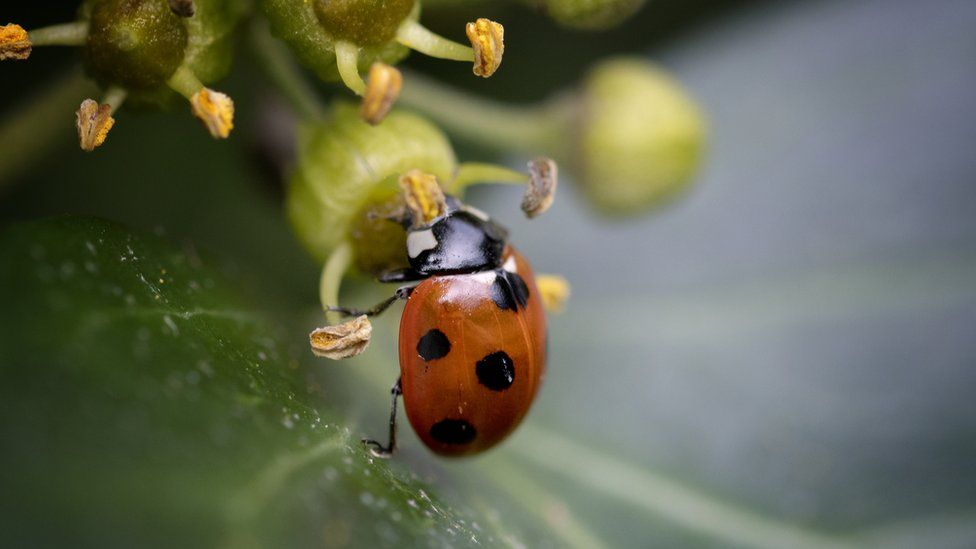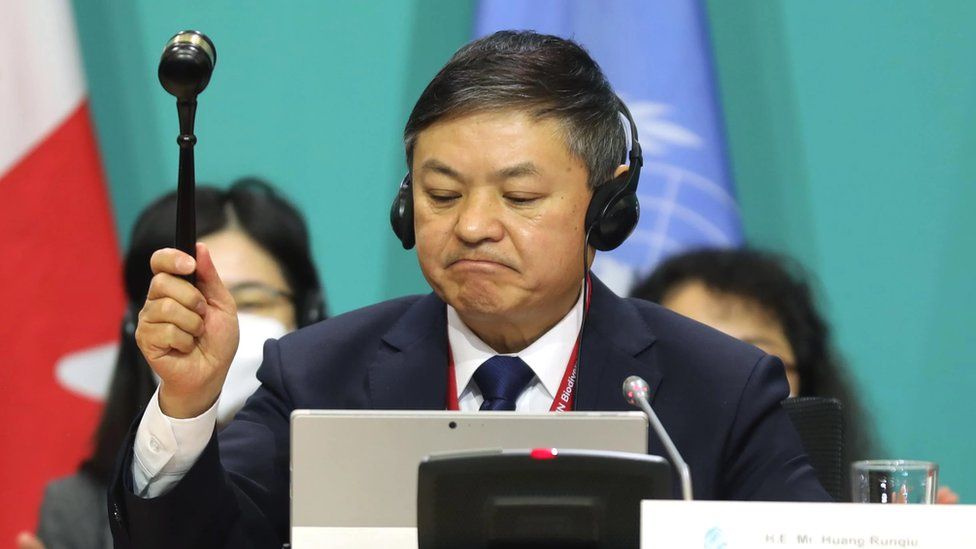BBC News 19 December 2022
A new deal to protect nature has been agreed at the UN biodiversity summit, COP 15.
The "historic" plan will put 30% of the planet under protection by the end of the decade.
There will also be targets for safeguarding vital ecosystems such as rainforests and wetlands.
The agreement was finalised in the early hours of Monday in Montreal, Canada, to cheers and applause.
But there had been deep division over the strength of ambition and how to finance the plans.
One big sticking point was over how to fund conservation efforts in the parts of the globe that harbour some of the world's most outstanding biodiversity.
Biodiversity refers to all the Earth's living things and the way they are connected in a complex web of life that sustains the planet.
A new text of the agreement was released on Sunday by China, the official president of the summit, which is also known as COP 15. It had to be moved to Canadian soil due to Covid restrictions in China.
Delegates convened a full session of the summit early on Monday morning to start going through the text, and agreed to the text quickly.
The document has strong language around ensuring the rights of indigenous peoples are protected and addresses the question of finance with proposals to boost the flow of international finance to developing countries.
"It has a lot of really positive elements and if governments truly implement it nature will be better off by 2030 than it is now," said Sue Lieberman of the Wildlife Conservation Society.
However, there has been criticism over a lack of focus on oceans in the agreement being negotiated, with questions over how much of the world's oceans are included in a target to protect 30% of the planet by 2030. And some have raised concerns about the strength of targets for reducing extinctions of plants and animals.
Tony Juniper, head of the government's advising body for nature in England, tweeted that the new plans were too weak, saying calls for ambition on finance must be matched by stronger ambition for nature recovery.
On Saturday, ministers made impassioned speeches about the need to agree on clear goals to put nature on a path to recovery by the end of the decade.
"Nature is our ship. We must ensure it stays afloat," said EU Commissioner for Environment, Oceans and Fisheries, Virginijus Sinkevicius.
Colombia's environment minister, Susana Muhamed, drew applause when she called for ambition in protecting the planet for the good of all. "Nature does not have boundaries," she said.
Countries have been meeting in Montreal, Canada, in what was billed a "last chance" to agree a plan that will halt and reverse the loss of biodiversity.
Scientists have warned that with forests and grasslands being lost at unprecedented rates and oceans under pressure from pollution, humans are pushing the Earth beyond safe limits.
This includes increasing the risk of diseases, like SARs CoV-2, Ebola and HIV, spilling over from wild animals into human populations.
A key sticking point has been finance. In echoes of the climate summit, COP 27, in Egypt, some countries have been calling for a new fund to be set up to help preserve biodiversity, but this was rejected by others.
The draft biodiversity framework includes four broad goals around protecting nature and sharing its benefits.
It also includes 22 targets ranging from the sustainable use and management of wildlife to the restoration of destroyed habitats and using fewer plastics and pesticides.


